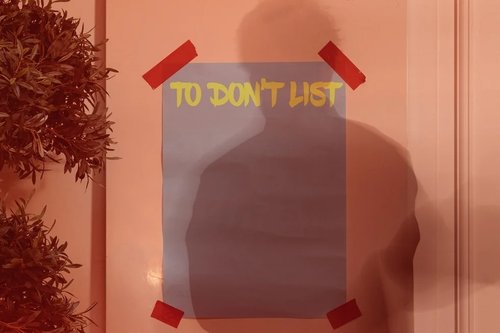The confidence gap: how to stop applying for jobs you’re overqualified for
Apr 05, 2023
4 mins


Vivian Nunez is a writer, content creator, and mental health podcast host.
In recent years, a narrative has gained traction on social media claiming that women only apply to jobs they are 100% confident they qualify for while men apply to jobs they are 60% confident they qualify for. This portrayal has even been referenced in many reputable publications. However, upon closer examination, it becomes clear that these statistics lack proper backing and may be more anecdotal than factual. While it’s undeniable that women face unique challenges in the workplace and often have to fight for their place, the truth is that we don’t know at what level women apply to jobs they’re overqualified for.
In any case, what’s clear is that job hunters often underestimate their potential. Leadership and career coach Dani Tan sees it firsthand with her clients. Why? Imposter syndrome and confidence issues are two big players, according to Tan. She explains that many of her clients feel uncomfortable applying for roles in which they don’t have experience in 100% of the job description requirements. There is an underlying fear among job hunters that applying to these roles will only lead to them being “found out” further down the line. However, the reality is that many roles can be learned on the job. As a coach, Tan’s mission is to help job seekers close the gap and gain the confidence they need to apply for roles they may feel underqualified for.
Women at work: what do the numbers really say?
One study found that many women are working daily to close substantial career gaps. Today, women are still vastly underrepresented in leadership roles, with only one in four C-Suite executives being women, and only one in 20 being a woman of color. The report also found that for every 100 men promoted from an entry-level position to a managerial position, only 87 women and 82 women of color are promoted. In addition to being passed over for promotions, women are also more susceptible to burnout; 43% of women leaders are burned out, compared to only 31% of men at their level.
Why do women apply for jobs they’re overqualified for?
“Many women feel as though they can only apply for jobs where they meet all the requirements listed in the job description,” explains Tan. “The reality is, when we apply for roles where we meet 100% of the requirements, that actually means we are overqualified.”
Women can shift their mindset from striving to meet 100% of a job description before applying to using a 100% match as a reason to look for the next job above it. Tan also encourages women to remember: “When applying for new roles, there should always be room for growth and learning. No one should be expecting you to come into a new role and, on day one, knows how to do everything.”
When does it make sense to apply for jobs you’re overqualified for?
Every rule has an exception, and applying for jobs you’re overqualified for is no different. Though, there are certain questions you should ask yourself ahead of time, including:
- Am I looking to pivot careers or industries?
- Are my transferable skills better suited for this role?
- Does this role align with my career goals, values, or aspirations?
- Is there growth potential if I decide to take a step back?
- Am I taking into account my non-negotiables?
- Ultimately, what am I looking to get out of this role, and how does it affect my long-term goals?
Tan notes that there are pros and cons to weigh when deciding. “Drawbacks could be less advantageous pay and benefits, slowing down your earning potential and career growth,” she explains. “But, benefits could be breaking into a new industry or role and learning new skills and gaining experience, improved work-life balance, and financial stability.”
Additionally, Tan encourages applicants to turn to mentorship before making any final decisions. “My number one piece of advice when making a career pivot is to ground yourself in the pivot by networking,” she shares. “Network with someone who has a similar background as you and pivoted into your target role. This will help you better understand what roles to apply for, what level to enter, and if it’s necessary to apply for a role you’re overqualified for or not.” By connecting with people who have already explored the path you’re on, you can build confidence and get a better idea of whether or not you should apply.
How do I close the confidence gap to stop applying to jobs I’m overqualified for?
According to research, white women earn an average of 82% of what men earn. Latina women earn $0.58 cents, and Black women $0.63 cents for every dollar White men earn. While most of us are familiar with the stubborn pay gap, something that tends to go less noticed is the confidence gap. The term, coined by Dr. Russ Harris, aims to explain some of the underlying psychological reasons why men traditionally tend to outperform women in the workplace.
“The number one way to close the confidence gap is to ground yourself in what is possible,” explains Tan. “Building out a network and listening to women who have done what you’re trying to do will help you see there is a path and it is possible. If you don’t know anyone firsthand who’s done what you’re trying to do I highly recommend searching on LinkedIn for women who are in the role or industry you’re interested in and talking to them about their experiences.”
It’s easier to become what you can see. Finding role models, even if they are not mentoring you personally, can help close the gap. “When you start an application process, you’ll feel even more confident because you’ve heard firsthand from women who’ve done it that you can do it too,” explains Tan. “It’s the unknown that lets imposter syndrome and insecurity leak in. Build up your confidence and foundation in facts by hearing about other women’s experiences—create a roadmap for yourself or work with a coach.”
Photo: Welcome to the Jungle
Follow Welcome to the Jungle on Facebook, LinkedIn, and Instagram and subscribe to our newsletter to get our latest articles every week!

More inspiration: Applying for jobs

Should you job hunt over the holidays? Tips to beat the new year rush
Searching for a new job to start fresh in 2025? The holiday season might be the right time for you to start the process.
Dec 09, 2024

Introverts & extroverts: Strategies to ace your interview
Job interviews can be tough, whether you're a social butterfly or a quieter introvert. The key to standing out is being yourself.
Aug 20, 2024

Should you be scared of the ghost job trend?
Have you ever been ignored after applying for a job? You may be a victim of the ghost job trend.
Jun 12, 2024

Lost in translation: Decoding bizarre job descriptions
“Candidates with no sense of humor need not apply.” Um …
Jan 25, 2024

Nailing your job search: Writing a to-don’t list for success
Don’t want this, don’t want that … Writing down things you want to avoid in a new job could be your job-hunting key.
Jan 18, 2024
The newsletter that does the job
Want to keep up with the latest articles? Twice a week you can receive stories, jobs, and tips in your inbox.

Looking for your next job?
Over 200,000 people have found a job with Welcome to the Jungle.
Explore jobs